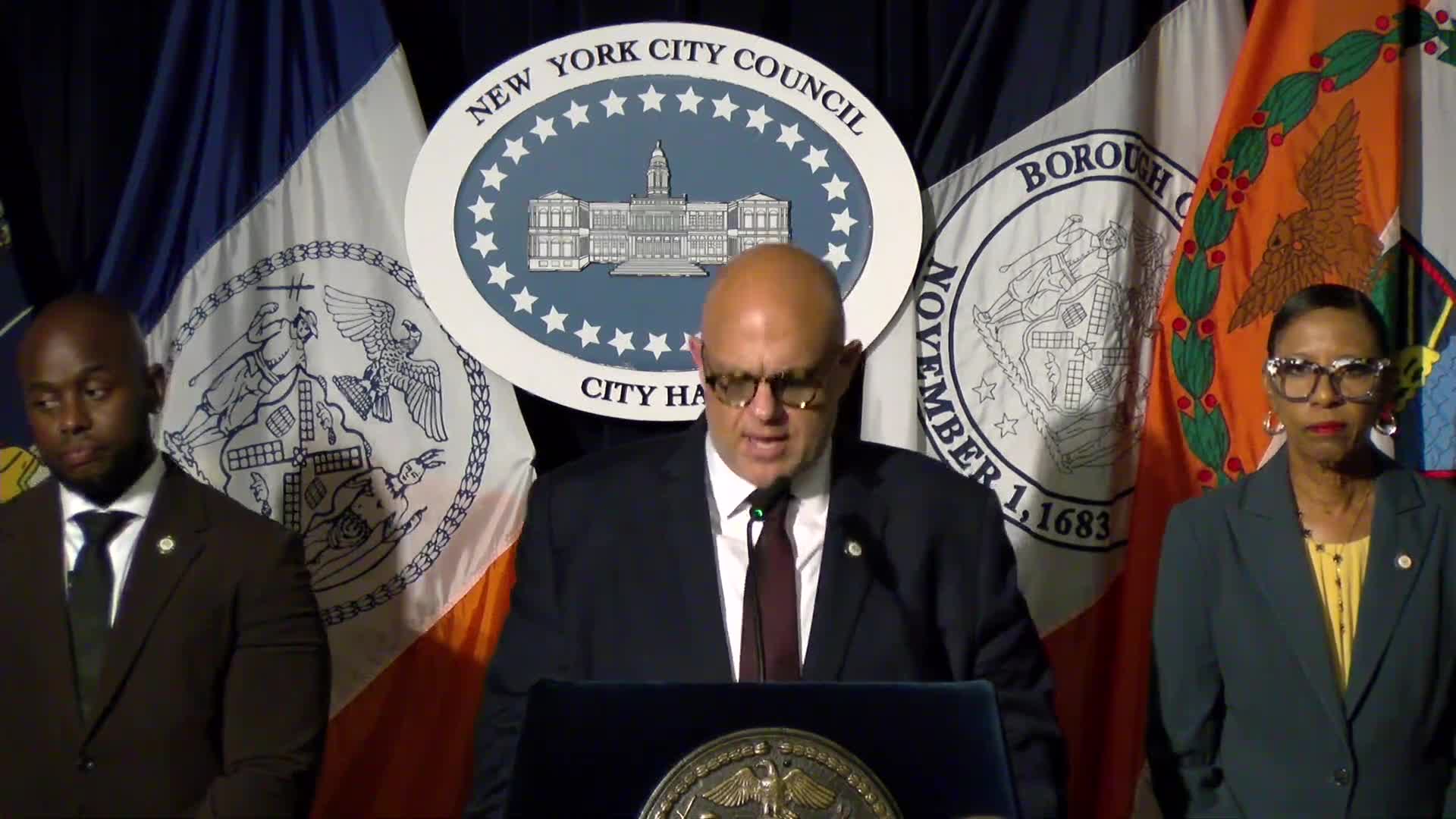Article not found
This article is no longer available. But don't worry—we've gathered other articles that discuss the same topic.
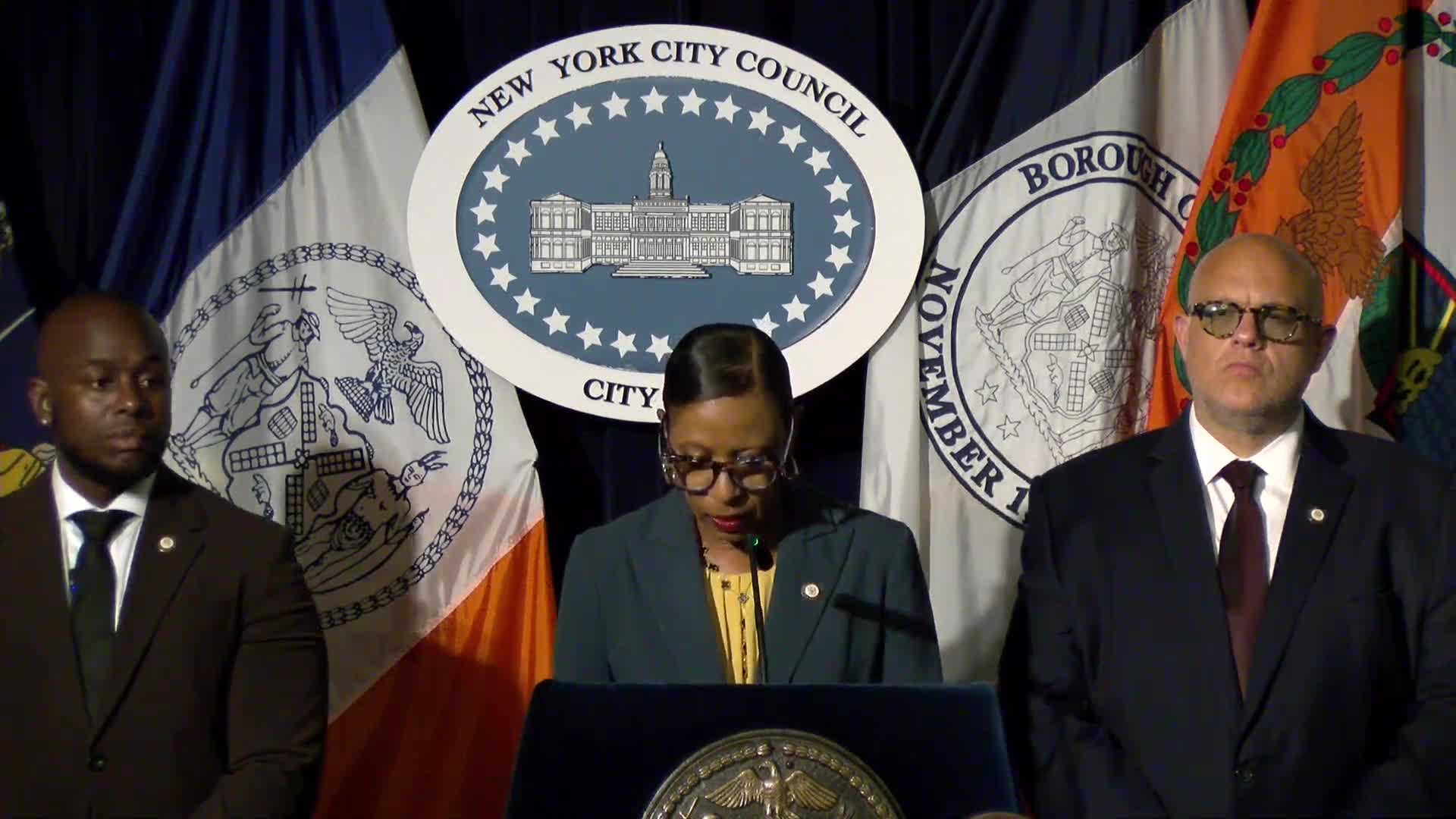
Votes at a glance: land‑use and finance items slated for council consideration (outcomes not recorded in transcript)
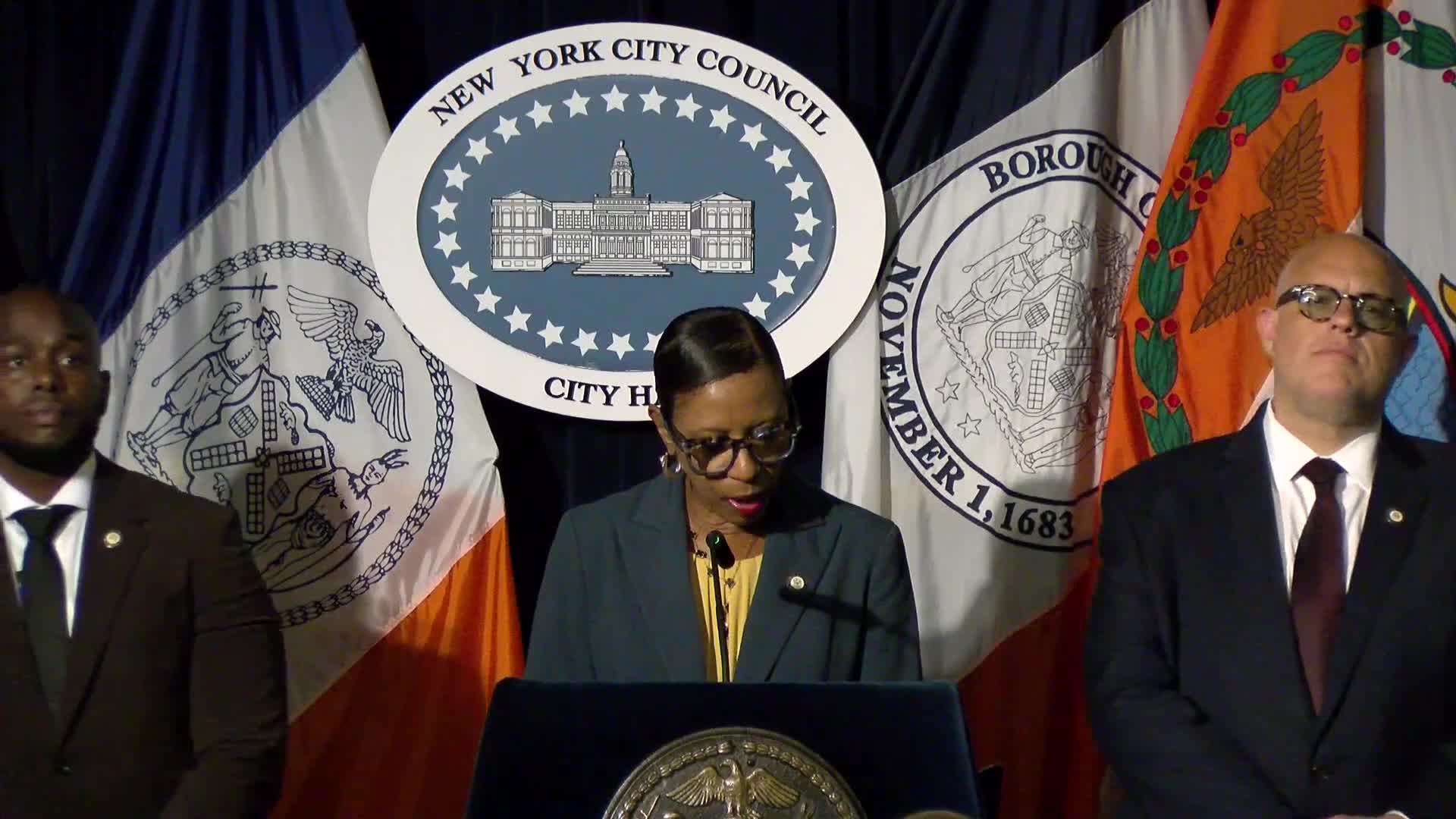
Council to vote on board-approved housing lease despite letter from Randy Mastro, speaker says
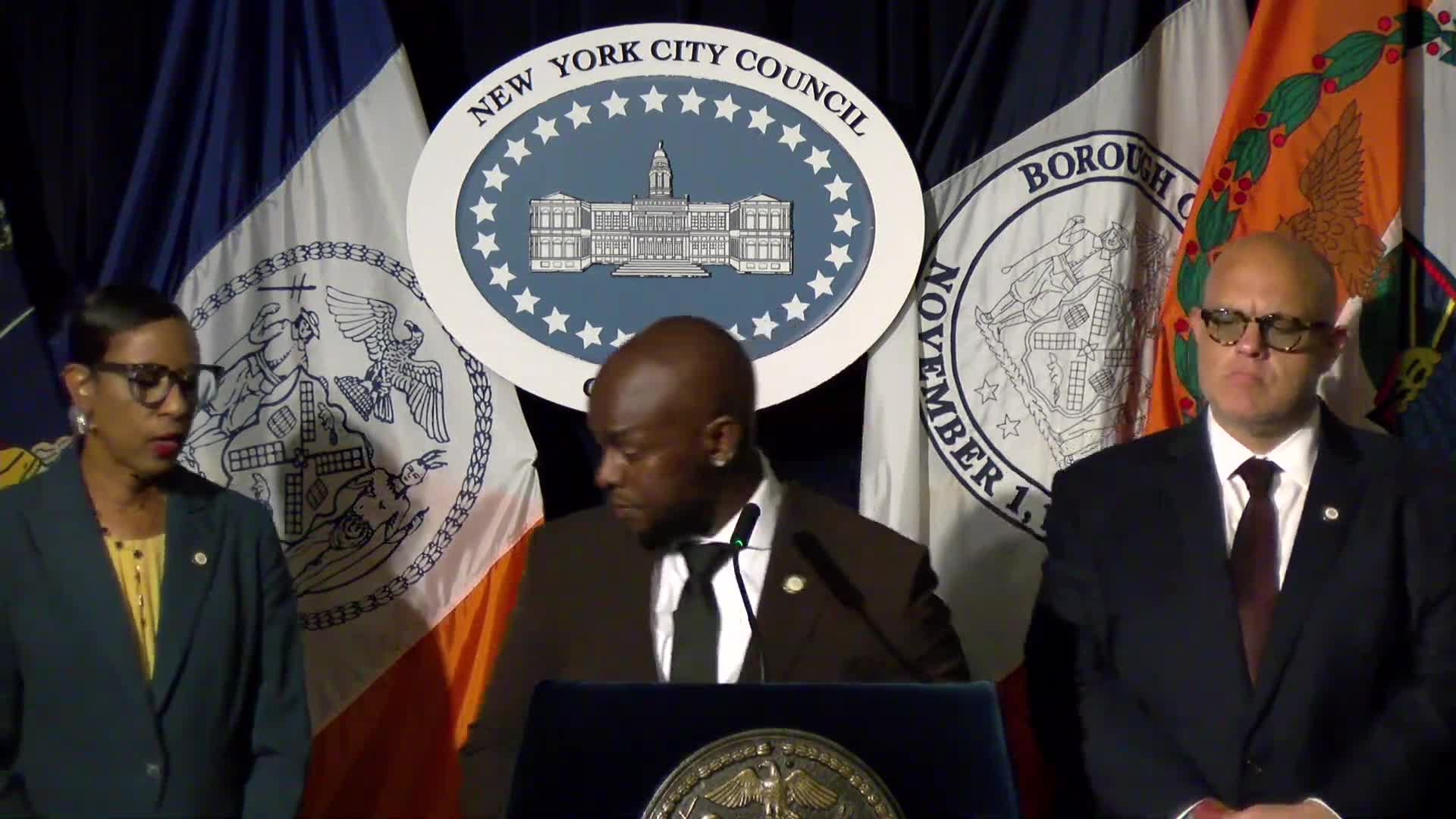
Council considers three climate planning bills to integrate energy, adaptation and environmental justice input into PlanYC
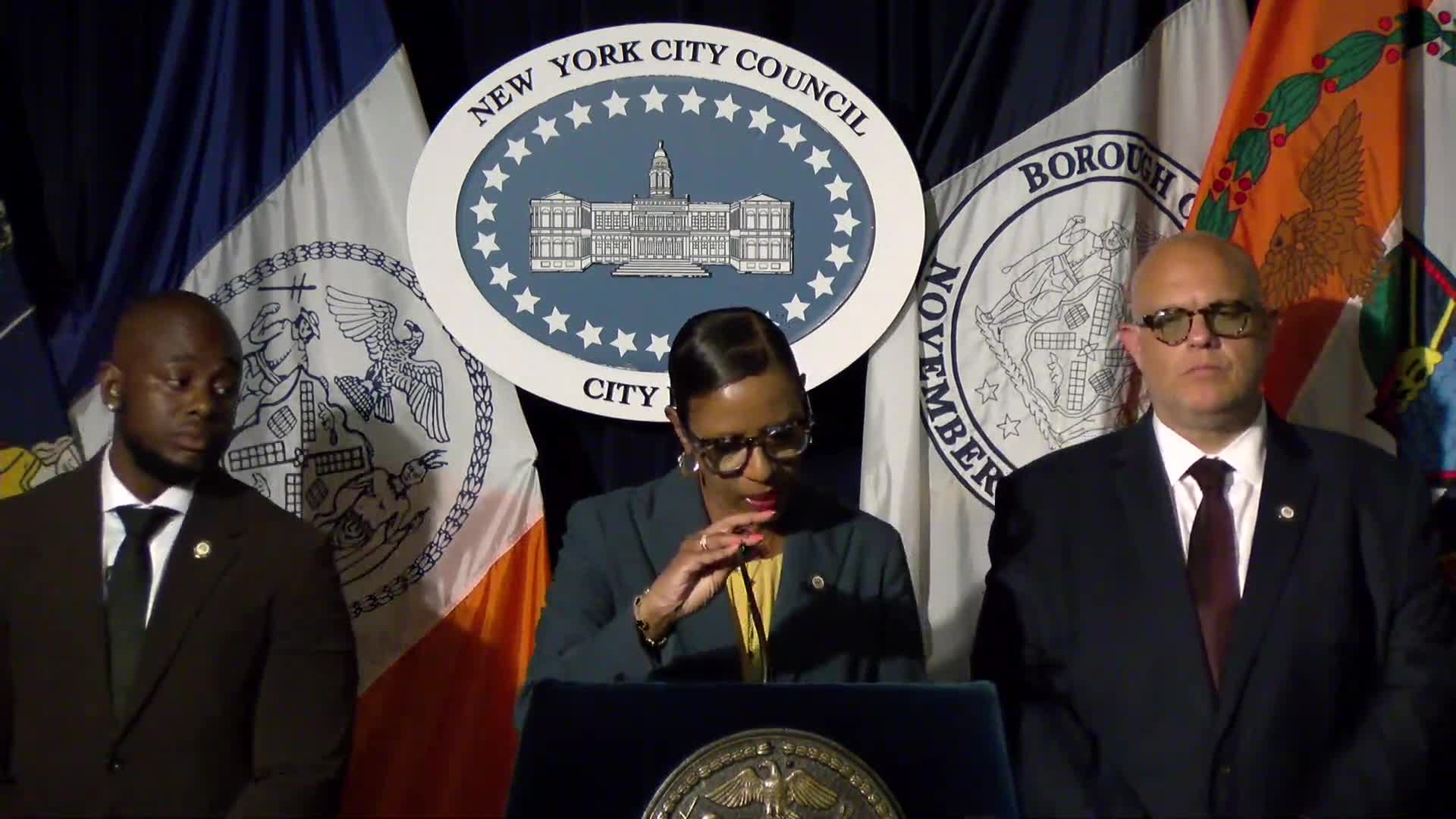
Council mulls transparency bill requiring annual reporting on after‑school programs
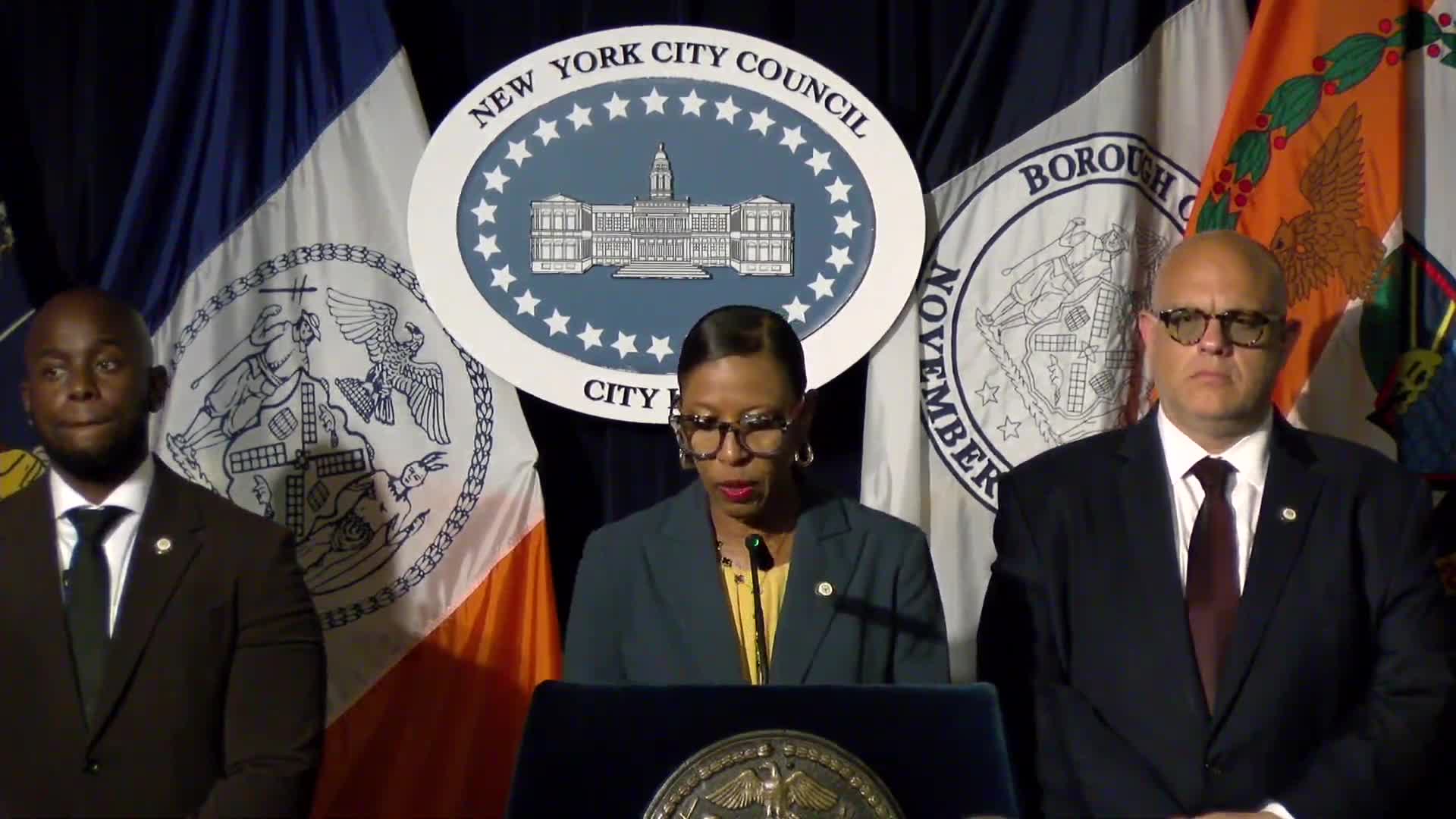
Council backs a cloud‑first assessment for city technology systems
